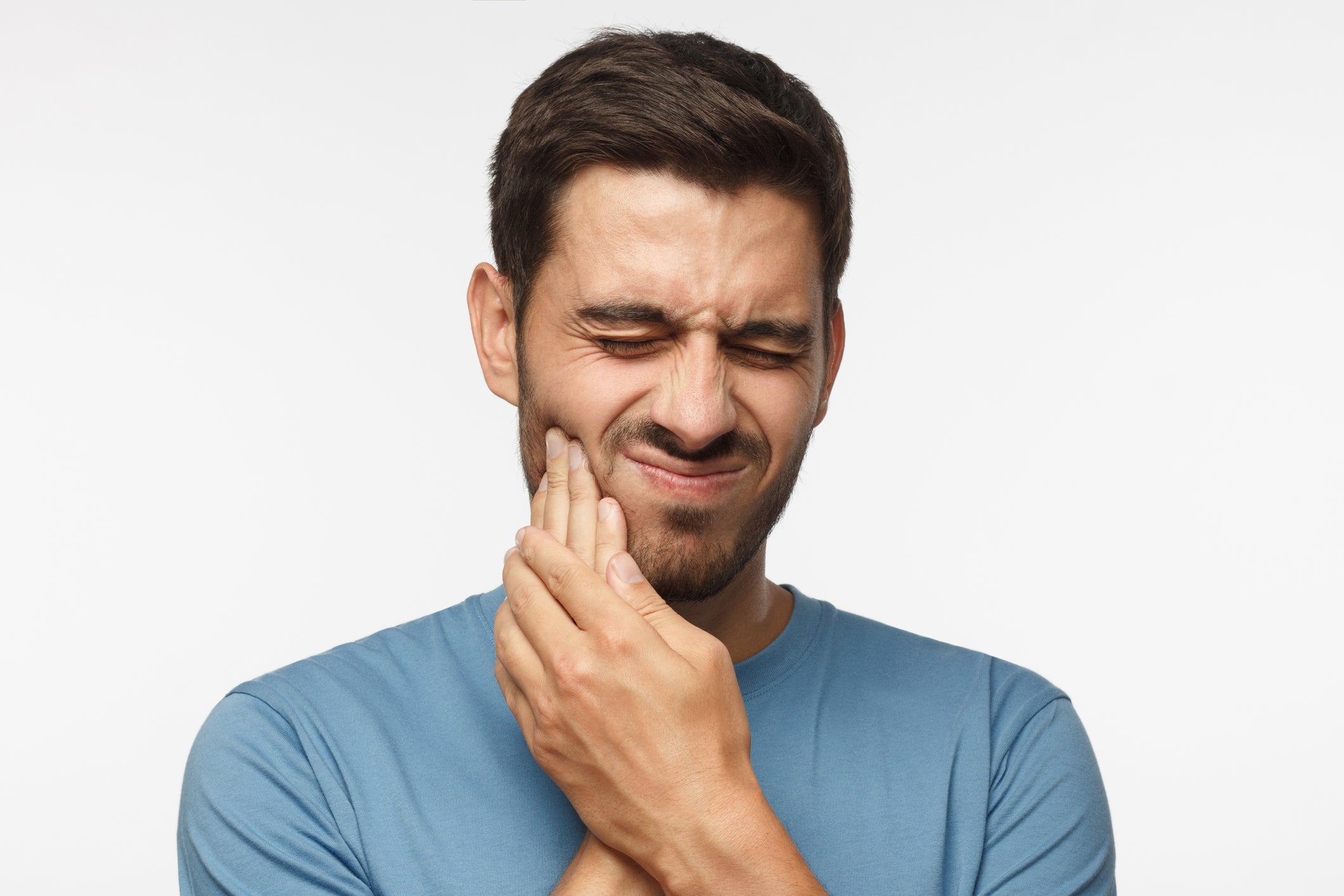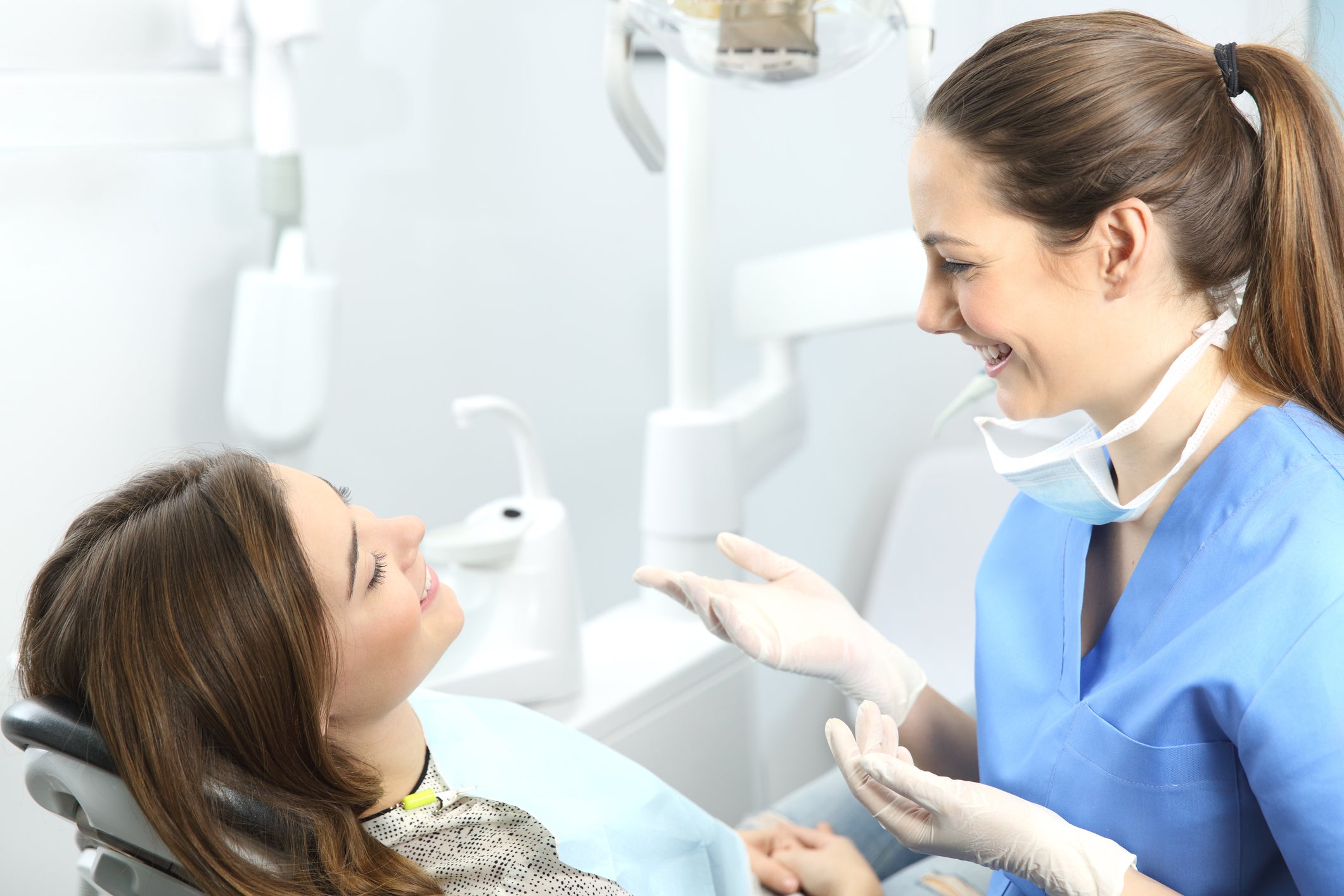-
What is a Root Canal, and When Do You Need One?

Years ago, deep cavities, diseased nerves, and infections almost always required tooth extraction. Today, teeth can often be repaired and saved thanks to endodontic treatment, also known as a root canal. Learn more about this procedure and how to tell when you might need one.
What is the Purpose of a Root Canal?
The innermost layer of your teeth, known as the pulp, is susceptible to infection. The purpose of a root canal is to remove the infected pulp and the nerves running through it. This helps prevent further complications and restores a healthy, pain-free mouth.
Without a root canal, an infected tooth may develop an abscess. This can be quite painful and puts you at risk of losing your tooth as bacteria damage the bone that connects your tooth to your jaw.
What Does a Root Canal Entail?
The treatment typically takes one to two office visits to complete. Contrary to popular belief, getting a root canal is not excruciatingly painful. In fact, similar to having a tooth extracted, your dentist will use a numbing agent to ensure you hardly feel a thing.
Before the root canal begins, your dentist will take X-rays to help assess the infected tooth and surrounding bone. Then, a local anesthetic is applied to keep you comfortable.
During the treatment, your dentist drills an opening into the tooth through which the pulp and nerves are removed. Don’t worry; taking out the nerve doesn’t affect your tooth’s function—it simply eliminates your pain.
Finally, the inside of the tooth is thoroughly cleaned and filled with a rubber-like dental composite material to seal the tooth against future infection. If an extensive amount of tooth had to be removed, your dentist might suggest placing a crown to protect against cracking. This may need to take place at a follow-up visit.
In the days following your root canal, your tooth and the surrounding area could feel sensitive. You may be advised to take over-the-counter pain relievers until the discomfort passes. You might also receive a prescription for antibiotics to prevent any residual infection from spreading.
As long as you take proper care of your teeth with daily brushing and flossing and routine trips to the dentist, the results of your root canal should last a lifetime.
When Do You Need a Root Canal?
A root canal may be needed if the pulp deep within your tooth becomes inflamed, infected, or damaged. If you experience any of these symptoms, visit your dentist right away to discuss the possibility of a root canal:
- Toothache (mild to severe)
- Pain when you bite down
- Sensitivity to temperature extremes
- Cracked or fractured tooth
- Discolored tooth
- Swollen, tender gums or drainage of pus
Whether you need a root canal or another form of restorative dentistry, Park 56 Dental can help. Our experienced endodontist specializes in pain-free root canal procedures. Contact our dentist office in NYC at (212) 826-2322 to schedule your consultation today.
-
What Causes Snoring? Solutions for Better Sleep

If your partner snores or your partner has complained that you snore, you may be on the lookout for ways to treat this problem. Occasional snoring is normal and nothing to be concerned about. However, chronic snoring may be a symptom of an underlying health problem that requires treatment.
Causes of Snoring
Periodic snoring may be caused by consuming alcohol close to bedtime, taking sleep aids, or sleeping on your back. Other causes include being overweight or having a deviated nasal septum or narrow airway.
Obstructive sleep apnea (OSA) is another possible reason for chronic snoring. This sleep disorder causes breathing to slow or stop five or more times per hour of sleep. The reduction in breathing signals the body to wake up, which may result in a loud gasping or snorting sound.
People with sleep apnea don’t just disrupt their partner with loud snoring—they also often struggle with fatigue, morning headaches, and difficulty concentrating. Sleep apnea can also cause high blood pressure, increase the risk of stroke, and lead to sexual dysfunction.
Treatments for Sleep Apnea
If you or a loved one snores loudly and struggles with daytime symptoms associated with obstructive sleep apnea, rest assured that solutions are out there! One option commonly recommended by doctors is to use a continuous positive airway pressure (CPAP) machine. While this may be the only effective option for treating severe OSA, patients with mild to moderate sleep apnea may benefit from wearing an oral appliance during sleep.
Oral appliances for sleep apnea resemble mouth guards worn to stop nighttime teeth grinding. The biggest difference is that oral appliances for sleep apnea are designed to hold your bottom jaw forward slightly. This helps prevent your tongue from relaxing and blocking your airway as you sleep.
Benefits of Oral Appliance Therapy
Many patients prefer using a non-obtrusive oral appliance to treat sleep apnea instead of a CPAP machine. Consider the many benefits of this option:
- Comfortable and simple to wear
- Discrete and easy to transport when traveling
- Easy to clean and care for
- Affordable
Get Solutions for Better Sleep from Park 56 Dental
To take full advantage of oral appliance therapy for sleep apnea, you need a custom device made to fit your mouth. The team at Park 56 Dental is happy to meet with you to discuss your snoring concerns. We will perform a series of tests to diagnose your condition and recommend the proper treatment. This may include a custom oral appliance, lifestyle changes, and more.
If we determine that a custom oral appliance can help you, we’ll fabricate one based on an impression of your teeth. This allows the device to fit your mouth without compromise for the best possible outcome.
The “Sleep Better” Team at Park 56 Dental can offer solutions to help you improve your quality of life. Contact us at (212) 826-2322 today to schedule a consultation at our NYC dentist office, and your journey to a more restful sleep will begin!
-
How Often Should You Visit the Dentist?

There haven’t always been guidelines for how often you should visit the dentist. As recently as 50 years ago, many dental professionals focused on restoring smiles rather than keeping them healthy in the first place.
Then, dental and health organizations began to rally around the idea of setting standards for preventative dentistry. It is upon these standards—and the continuing evolution of dental care and advice—that dentists operate today.
Visit the Dentist Every 6 Months
The general rule of thumb is to visit the dentist every six months. This timeframe allows your teeth to benefit from frequent professional cleanings that can prevent gum disease and cavities.
With no evidence to work from, early dental and health organizations made their “best guess” when they recommended that people see the dentist twice a year. The advice ended up being spot on! Some of the first publicized references to this recommendation were found in early Pepsodent ads, such as this one from 1931, which advises customers to “use Pepsodent twice a day—see your dentist twice a year.”
Even if you take great care of your teeth at home—by brushing every morning and night, and never forgetting to floss each day—you still need to see a dentist regularly. First of all, those tartar stains that form on your teeth can only be removed with professional dental tools.
Plus, there’s always the possibility of developing cavities, gum disease, or oral cancer, which don’t exhibit symptoms in their early stages. Frequent visits to the dentist give you a chance to uncover these problems and reverse them while they’re still in a manageable stage.
Consider Oral Hygiene, Eating Habits & Medical Conditions
While seeing the dentist every six months is a good recommendation for most people, it doesn’t apply to everyone. For instance, some individuals with a spotless dental record, flawless oral hygiene, and a healthy diet have a low risk for oral health problems. They may do just fine seeing the dentist only once a year.
Other people have a higher-than-average risk for cavities, gum disease, and oral cancer. We recommend that the following groups visit the dentist more frequently:
- Smokers
- People prone to cavities or plaque buildup
- Periodontal disease patients
- Pregnant women
- Diabetics
- People with bacterial infections or weak immune systems
- People dealing with illness or high stress
These individuals may need to visit the dentist every three or four months for a short time, for several years, or throughout their entire life. More frequent dentist visits help to fight off infections, treat changes in the mouth, and prevent certain situations or lifestyle choices from causing more severe health problems.
Park 56 Dental is ready to serve as your dentist in NYC! At your next appointment, be sure to ask for advice about what dental cleaning schedule you should follow. For answers to your remaining questions, or to schedule a visit, please contact us at (212) 826-2322 today.
-
Caring for Your Braces

If you have invested in braces to straighten your teeth, it’s clear that having a healthy, beautiful smile is important to you. The trouble is that traditional braces make dental hygiene a bit trickier than usual. To help ensure your teeth don’t succumb to cavities while you’re straightening your smile, follow these tips to care for your braces.
Brush with Care
Food particles and plaque tend to accumulate under and around the brackets and wires of your braces. With the following brushing techniques, you can sweep away debris to help keep your mouth clean and cavity-free:
- Remove elastics, bands, and any other removable parts of your braces.
- Clean around the wires and brackets with a soft-bristled toothbrush. Start by holding your toothbrush at a 45-degree angle from the gum line. Then, tilt the bristles as needed to sweep away even the most stubborn particles.
- Brush for two minutes twice a day. Aim to spend 30 seconds in each quadrant of your mouth.
- Rinse with tap water, and examine your teeth and braces in the mirror. Check for any lingering food particles that require a little more attention.
- If you don’t feel like your manual toothbrush is doing a thorough enough job, consider investing in an electric toothbrush. Look for one with a round head and V-shaped bristles designed for use with braces.
Remember to Floss
Flossing once a day is important for everyone, including people with braces. Unfortunately, the wires make it difficult to floss between your teeth along the gum line.
One solution is to use a floss threader. This makes it easier to feed the floss under each wire. We also recommend using waxed floss, which is less likely to get caught and shredded up in your braces. You can also use self-threading floss, which features a stiffened tip that speeds up the process of flossing with braces or permanent retainers.
No matter which method you use, thread the floss carefully under the main wire of your braces before passing it through your teeth. Be careful not to snap the floss—simply move it up and down slowly against each side of the tooth. Then, remove the floss and re-thread it through the next wire. Repeat this process until you have flossed between all your teeth.
Schedule Follow-Up Appointments
Visit your orthodontist for routine checkups and adjustments to your braces. This is what allows your teeth to continue shifting into the ideal position. Also, keep up with regular cleanings and oral exams with your regular dentist to keep your mouth healthy and catch cavities early. You may also receive more useful tips for brushing and flossing with braces.
Traditional braces aren’t right for everyone. If you’re interested in finding out what Invisalign has to offer, please contact Park 56 Dental in NYC at (212) 826-2322. We’ll help you get the beautiful smile you’ve always wanted without metal braces!
RECENT POSTS
categories
- Uncategorized
- Cosmetic Dentistry
- Veneers
- Healthier Teeth
- Teeth Whitening
- Dental Health
- Video
- Dental Emergencies
- Invisalign
- Dental Implants
- Root Canal
- Sedation Dentistry
- Infographic
- Dental Crowns and Bridges
- Dental Anxiety
- Gum Disease
- COVID-19
- Bad Breath
- New York Dentist
- Cut out sugar
- General Dentistry
- Oral Health
- Oral Cancer
- Dry Mouth
- Gum Health
- Toothache
- Dental Sealants
- Cavities



